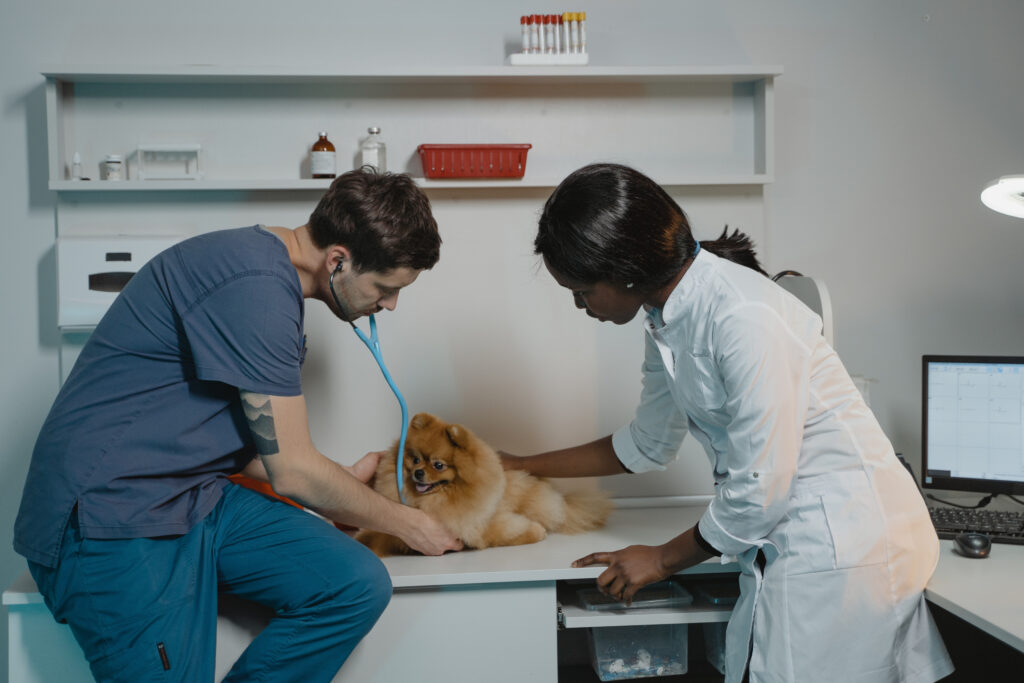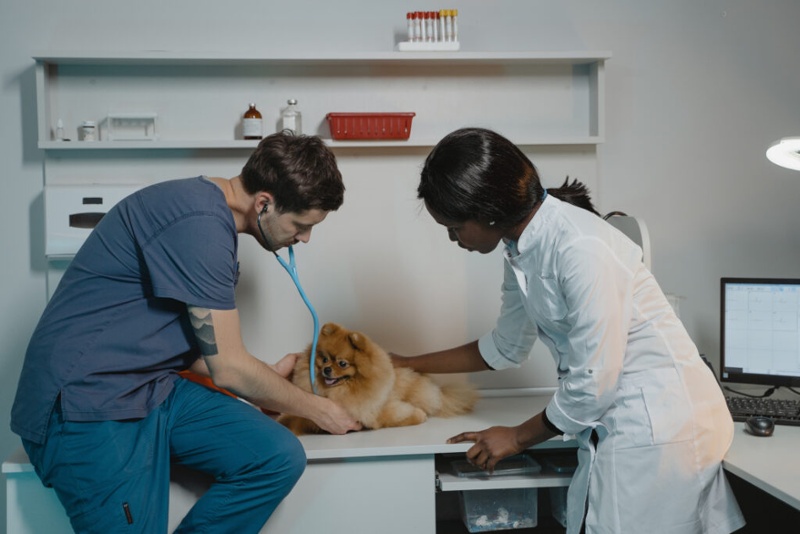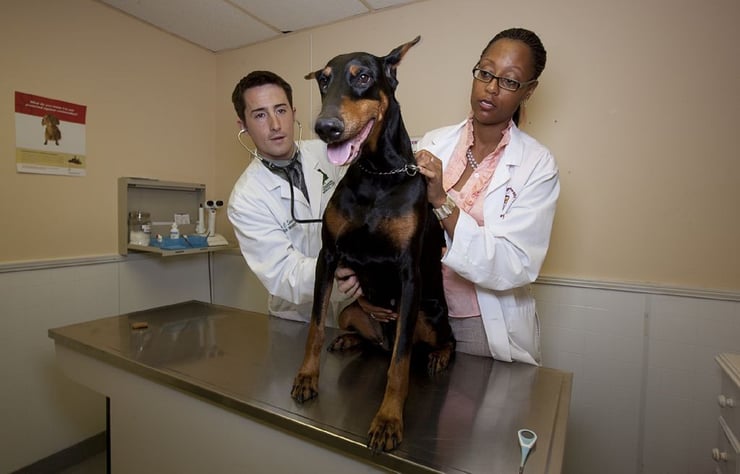Owning Your Own Veterinary Hospital: How to Avoid the Pitfalls

Congratulations! You spent years training to become a veterinarian and now you want to transition into hospital ownership. On a positive note, there is a high demand for veterinary services that will likely remain strong since pet ownership is a priority in many families.
Nevertheless, practice ownership involves a large financial investment and there may be stumbling blocks along the way.
What are the potential pitfalls to avoid on the way to practice ownership?
Not surprisingly, potential pitfalls may relate to how you manage your finances — both from your lender and your practice income. Read on for common obstacles in veterinary hospital ownership and guidelines on how to protect your investment for a successful outcome.
Inadequate build-out funding
Incorrectly estimating how much funding you will need to fully complete your veterinary hospital is a big risk. Sometimes less obvious needs, such as a parking area in a downtown location, are overlooked. Other times, an inexperienced build-out team does not grasp the unique requirements of a veterinary office.
Whatever the cause, being short on funds can cause considerable stress and lead to poor decision-making.
Shortage of practice income
For a startup practice, you may encounter challenges in your first year or two as you try to generate enough patient traffic to cover expenses. Introducing a new service to the community requires marketing and networking to gain visibility, attract clients, and generate patient loyalty. It can take a few years to establish a large enough self-supporting client base to sustain a full-time veterinary practice.
Consider practicing elsewhere part-time until your practice is operating at a higher level and can support itself.
Overpaying for a practice
Some new doctors try to save money by handling the practice acquisition process themselves rather than hiring an experienced broker. As a result, the doctor relies on the selling doctor’s valuation and terms which may result in you paying a higher price than what the practice is actually worth.
To avoid overpaying for your veterinary hospital, use a professional appraiser who understands the ins and outs of the veterinary field and understands the fair market value.
Declining revenues after transition
Revenues may decline after you purchase your new hospital. This is common. Clients often shop around when a new practice owner is introduced. They may search for a vet closer to home or an animal hospital that bundles specialty services.
You must understand the drop in order to determine how to get revenues back on track.
Before your transition, reach out to the patients through a letter. Introduce yourself, your experience, and your background. Consider offering a promotional discount on services or exams for the first few months. Understand your practice numbers from the start so you can accurately evaluate the transition and potential drop in revenues.
Seven steps to a smooth transition
Sometimes you can’t avoid the pitfalls as you transition to practice ownership. Be prepared and have a back-up plan so if you do encounter problems, you can work toward a solution rather than floundering.
- Activate your team
Work with a team of professionals before you start your project. Business professionals who have gone through the practice acquisition or start-up process can make sure your interests are protected. This team can help you avoid potential obstacles or frustrations. Your team may include:- Practice Acquisition: Attorney, practice broker, lender, accountant, and insurance broker, marketing agency
- Start-up Practice: Attorney, general contractor, lender, accountant, equipment supplier, insurance broker, marketing agency
- Complete your due diligence
If you are purchasing a practice, ask to see the numbers, charts, reports, schedules, etc. so you understand the daily operations and can avoid unpleasant surprises.
If you are starting a practice, complete a plan for technology development, staffing, marketing, Occupational Safety and Health Administration (OSHA) guidelines, and other critical business requirements of your practice. Research and understand the size and makeup of the local population, its veterinary needs, and the competition in the area.
- Monitor practice performance
Regularly examine the hospital’s statistics to maintain the health of your practice. Understanding the profit and loss numbers makes it easier to diagnose and treat problems before they affect your bottom line. A practice monitoring tool can help you determine a baseline for your systems from production to operating expenses. - Manage your cash flow
Any business can experience periods of cash flow shortages. Manage your cash flow by setting production goals, paying down excess debt, and saving 10% of your income after expenses. This ensures you are prepared if you have a bad month or unexpected expenses. - Beef up your marketing
Whether you work with a healthcare marketing agency or handle your own marketing needs, create a consistent program to build awareness of your practice. As your budget allows, explore additional avenues such as internet ads, print, or radio and television. Send letters to the community introducing yourself. Request referrals from current clients. Use social media. There are numerous marketing tools at your disposal. - Improve your treatment presentation skills
Participate in a workshop with your staff to improve verbal skills. This can help with presenting treatment recommendations or handling client concerns. Keep track of the recommended treatment and whether or not the client accepts your recommendation. Note why the client accepts or rejects so you understand which presentation techniques are working well and which need to be improved. - Know your strengths and build on them
Create a team of specialists and staff who complement your skills. Understand your own weaknesses and work to improve them as you let your strengths set the tone for the practice.
Making the transition into practice ownership can have pitfalls. However, if you rely on a team of professional advisors such as LenDRgroup Consulting, you can plan your success well in advance for an effective, profitable transition.
At LenDRgroup Consulting, we care about the long-term success of your veterinary practice. Our team offers customized practice financing or business consulting services to meet the needs of your veterinary practice and your career.
We developed a lending platform of 300+ dental and healthcare-specific lenders with the sole purpose of helping dentists, veterinarians, and physicians. We want you to achieve your practice ownership goals and will work to eliminate the financing obstacles in your way.
Thus far, we have helped hundreds of veterinary professionals just like you launch, expand, and grow their practices. LenDRgroup Consulting recognizes and understands your business’ needs and can provide guidance to help avoid costly mistakes. So, let’s get started.
Contact us today to schedule your consultation.



